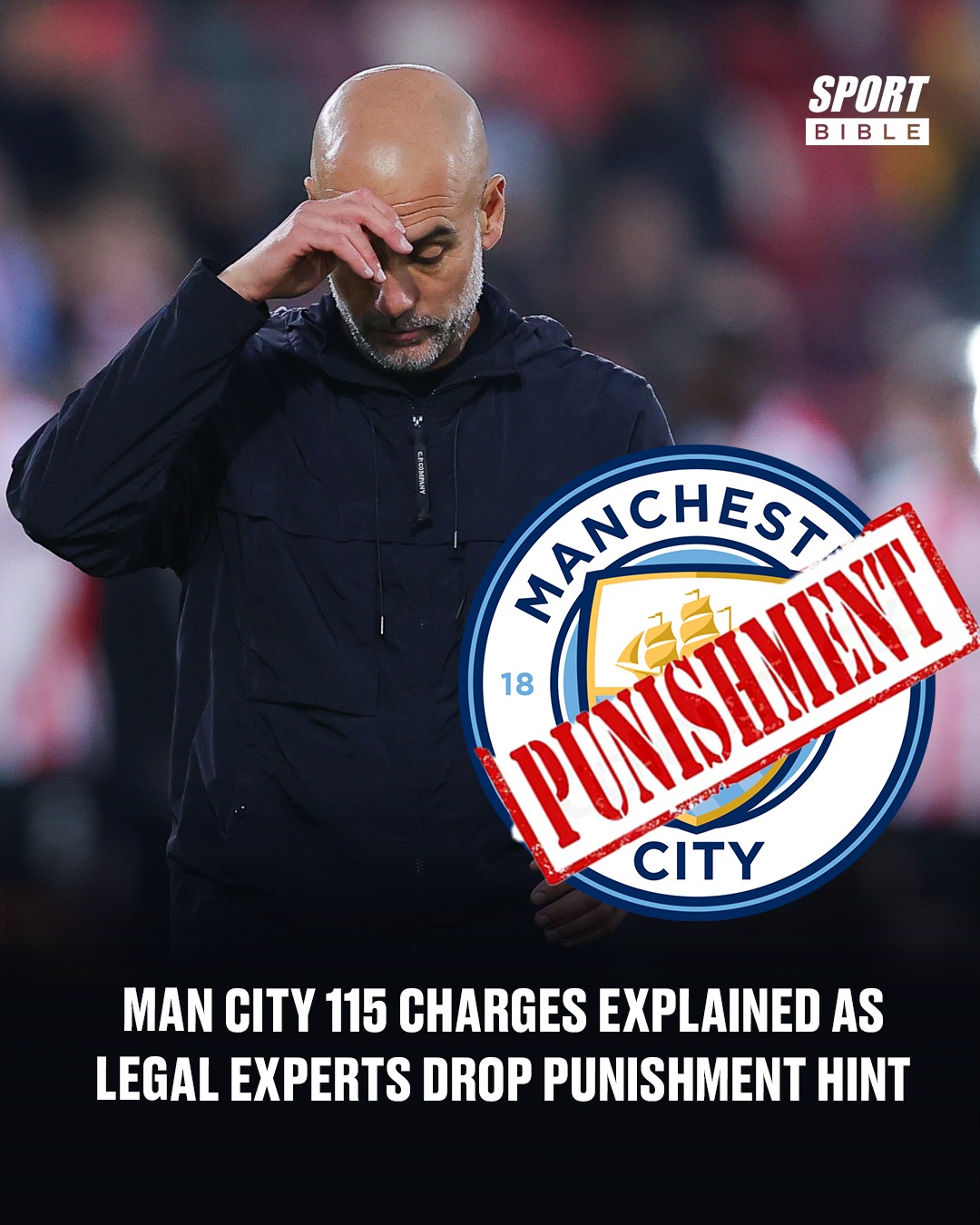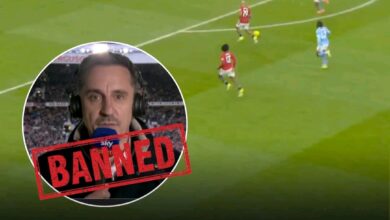Manchester City’s 115 Charges Explained: Legal Experts Provide Detailed Analysis as Verdict Approaches and Potential Punishments Loom

Manchester City’s dominant performances on the pitch—exemplified by their recent 2-0 victory over Everton that extended their unbeaten run to eight matches across all competitions—stand in stark contrast to the ongoing legal uncertainty that continues to cast a shadow over the club’s recent achievements. The Premier League champions face 115 charges of alleged rule breaches, with a verdict expected imminently following a comprehensive 10-week hearing that concluded in autumn 2024. As the football world awaits what many have dubbed the ‘Trial of the Century,’ legal experts have provided detailed analysis of the charges, the potential punishments, and the likelihood of appeals, painting a complex picture of what could become the most significant moment in modern English football history.
The Origins: February 2023 Announcement That Shocked Football
The saga began in February 2023 when the Premier League announced that Manchester City had been charged with 115 alleged rule breaches covering a period from 2009/10 through 2017/18, with additional charges relating to the club’s cooperation with investigations extending to February 2023. The announcement sent shockwaves through English football, representing the most extensive set of charges ever leveled against a Premier League club and threatening to undermine City’s extraordinary period of domestic dominance under Pep Guardiola’s management.
The charges relate to fundamental aspects of football governance and financial regulation, touching on issues of financial transparency, regulatory compliance, and the integrity of competition itself. If proven, these alleged breaches would represent systematic attempts to circumvent the financial regulations designed to ensure competitive balance and financial sustainability across English football’s top division. The implications extend far beyond Manchester City, potentially affecting title races dating back over a decade, financial compensation claims from rival clubs, and the broader credibility of the Premier League’s regulatory framework.
Manchester City have consistently and strenuously denied all charges, maintaining an unwavering stance of innocence throughout the process. The club has publicly stated that they are “totally confident” of being exonerated when the independent commission delivers its verdict, characterizing the charges as baseless and expressing frustration with what they perceive as a protracted and prejudicial process. This confidence has been matched by the club’s willingness to invest heavily in legal representation, assembling a formidable team of lawyers and experts to contest the allegations.
The Charges Breakdown: 130 Alleged Breaches Across Five Categories
While Manchester City were initially reported to face 115 charges, legal experts have subsequently clarified that the actual number of alleged rule breaches stands at approximately 130 due to a reporting error in the Premier League’s original announcement. This discrepancy, while seemingly minor, underscores the complexity of the case and the challenges involved in accurately communicating the scope of the allegations to the public. The charges themselves fall into five distinct categories, each addressing different aspects of the club’s financial and regulatory conduct over nearly a decade.
Category One: Failure to Provide Accurate Financial Information (54 Alleged Breaches)
The most numerous category of charges relates to Manchester City’s alleged failure to provide accurate and up-to-date financial information covering the period from the 2009/10 season through and including the 2017/18 season. These 54 alleged breaches represent the core of the Premier League’s case, suggesting systematic misrepresentation of the club’s financial position over nearly a decade.
Financial transparency forms the bedrock of modern football governance, with clubs required to submit detailed financial statements that accurately reflect their revenues, expenditures, assets, and liabilities. These submissions enable regulators to monitor compliance with financial sustainability regulations, ensure competitive balance, and maintain the integrity of competition. If Manchester City did indeed provide inaccurate financial information during this period, it would represent a fundamental breach of trust between club and regulator, potentially masking the true extent of the club’s spending and revenue generation.
The allegations in this category likely relate to questions about the true source and nature of various revenue streams, particularly those involving sponsorship deals with companies connected to City’s Abu Dhabi ownership. The Premier League’s investigation reportedly focused on whether certain sponsorship agreements were funded directly or indirectly by the club’s owners rather than representing genuine third-party commercial arrangements. If proven, such arrangements would artificially inflate the club’s apparent revenue, enabling higher spending on player wages and transfers while appearing to comply with financial regulations.
Category Two: Failure to Cooperate with Premier League Investigations (35 Alleged Breaches)
The second-largest category involves 35 alleged breaches relating to Manchester City’s cooperation—or alleged lack thereof—with Premier League investigations covering the period from December 2018 through the date of the charges in February 2023. These charges carry particular significance because they speak to the club’s conduct during the investigatory process itself rather than the underlying allegations being investigated.
Regulatory frameworks depend on the willingness of regulated entities to cooperate fully and transparently with investigations. When clubs are suspected of rule breaches, they are expected to provide requested documentation, make relevant personnel available for interviews, and generally facilitate the investigatory process. Allegations that Manchester City failed to cooperate properly suggest the club may have obstructed the Premier League’s attempts to establish the facts, potentially through delayed responses, incomplete documentation, or refusal to provide access to relevant information.
These cooperation-related charges could prove particularly damaging even if some of the underlying financial allegations are not proven. Failure to cooperate with investigations represents a separate and distinct offense that demonstrates contempt for the regulatory process itself. Independent commissions often view such conduct unfavorably, potentially resulting in enhanced punishments even if other charges are dismissed or result in lesser findings of guilt.
Category Three: Inaccurate Financial Reports for Player and Manager Compensation (14 Alleged Breaches)
The third category encompasses 14 alleged breaches relating to the accuracy of financial reports concerning player and manager compensation during the same 2009/10 through 2017/18 period. These charges suggest that Manchester City may have failed to accurately report the true extent of payments made to players and coaching staff, potentially through arrangements that kept certain payments off the official books.
Player and manager compensation represents one of football clubs’ largest expenditure categories, with top players and coaches commanding multi-million pound annual salaries. Financial regulations require complete and accurate reporting of all such compensation to ensure clubs do not circumvent spending limits through creative accounting or off-books payments. The allegations against Manchester City likely relate to questions about whether all payments to players and managers were properly disclosed in the club’s financial submissions.
Such arrangements, if they existed, might involve payments made through third parties, image rights deals structured to reduce apparent salary costs, or other mechanisms designed to provide additional compensation while minimizing the reported wage bill. Any findings that Manchester City systematically under-reported player and manager compensation would represent serious regulatory breaches with significant competitive implications, as the club would have effectively spent more on talent than regulations permitted while appearing to comply with financial rules.
Category Four: Breaches of Profitability and Sustainability Regulations (Seven Alleged Breaches)
The fourth category involves seven alleged breaches of the Premier League’s profitability and sustainability regulations covering the 2015/16 through 2017/18 seasons. These charges relate directly to the financial fair play framework designed to prevent clubs from spending beyond their means and accumulating unsustainable losses that might threaten their long-term viability.
Profitability and sustainability regulations limit the losses clubs can incur over rolling three-year periods, with permitted losses varying based on factors including ownership funding and revenue levels. Clubs that exceed these loss thresholds face potential sanctions including fines, transfer restrictions, or points deductions. The charges against Manchester City suggest the club may have exceeded permitted loss levels during this period, potentially through the mechanisms alleged in the other charge categories—inflated revenues through related-party transactions and under-reported expenditures on player and manager compensation.
These charges carry particular significance because they directly impact competitive fairness. If Manchester City did breach profitability and sustainability regulations, they would have gained unfair competitive advantages by spending more on players and managers than regulations permitted, potentially enabling them to assemble squads of higher quality than would have been possible under proper regulatory compliance.
Category Five: Failure to Comply with UEFA Regulations (Five Alleged Breaches)
The fifth and final category comprises five alleged breaches relating to Manchester City’s compliance with UEFA’s regulations, including UEFA’s Club Licensing and Financial Fair Play Regulations. These charges acknowledge the overlap between Premier League regulations and the broader European football governance framework, with clubs participating in UEFA competitions required to comply with both domestic and continental regulatory requirements.
Manchester City’s relationship with UEFA’s financial fair play framework has been contentious for years, culminating in the Court of Arbitration for Sport (CAS) overturning a two-year ban from European competition in 2020 on procedural grounds, with CAS determining that most alleged violations were time-barred. The Premier League charges suggest that issues similar to those investigated by UEFA may have violated domestic regulations as well, potentially involving the same transactions and arrangements but assessed under the Premier League’s regulatory framework rather than UEFA’s.
The Hearing Process: Ten Weeks of Legal Arguments
Following the announcement of charges in February 2023, preparations for the hearing consumed over a year, with both Manchester City and the Premier League assembling extensive legal teams and gathering voluminous documentary evidence. The hearing itself commenced in autumn 2024, stretching across ten weeks of intensive legal argument, witness testimony, and examination of financial documents spanning nearly a decade of the club’s operations.
An independent three-person commission was established to hear the case, providing the appearance of impartiality essential to the legitimacy of any verdict. These commissioners, typically composed of legal experts and individuals with relevant football governance experience, were tasked with reviewing evidence from both parties’ lawyers before reaching conclusions on each individual charge. The commission operated under arbitration rules rather than as a traditional court, providing flexibility in procedures while maintaining legal rigor in assessing evidence and arguments.
The hearing’s length—ten weeks represents an extraordinarily protracted process even by the standards of complex commercial litigation—underscores the case’s complexity and the volume of evidence requiring examination. Lawyers for both sides would have presented detailed arguments about the interpretation of financial regulations, the characterization of various transactions, the credibility of witnesses, and the inferences that should be drawn from documentary evidence. Manchester City’s legal team would have challenged both the factual allegations and the Premier League’s legal interpretations, while the Premier League’s lawyers would have sought to demonstrate systematic regulatory violations justifying serious sanctions.
The Verdict Timeline: Expectations and Delays
Following the hearing’s conclusion in autumn 2024, the football world anticipated a relatively prompt verdict, with many expecting a decision before the end of the 2024/25 season. However, the complexity of the case and the significance of the decision have contributed to delays that have extended the uncertainty well into 2025. Manchester City manager Pep Guardiola, speaking in February 2025, suggested he believed the outcome would be known within a month, but that timeline has not been met, with the verdict now expected sometime in October 2025 or potentially shortly thereafter.
Miguel Delaney, a respected football journalist from The Independent, recently reported “growing murmurs” from senior figures suggesting that a verdict could be delivered this month, bringing the prolonged saga toward its climax. Legal expert Stefan Borson, speaking to talkSPORT, suggested there is “no real excuse for further delays” and expressed his belief that a decision is “imminent,” with the case unlikely to continue into 2026. These statements from informed observers suggest the commission has completed its deliberations and may be finalizing the formal written verdict that will be delivered to both parties.
The delay in issuing a verdict, while frustrating for all parties seeking closure, is not necessarily surprising given the case’s complexity and significance. The commission must reach conclusions on approximately 130 individual alleged breaches, assess evidence spanning nearly a decade, apply complex financial regulations to disputed transactions, and craft a verdict that will withstand intense scrutiny from legal experts, football authorities, rival clubs, and the broader public. The written verdict will likely run to hundreds of pages, detailing the commission’s findings on each charge category, explaining its reasoning, and outlining any sanctions to be imposed.
Potential Punishments: From Fines to Expulsion
Speculation about Manchester City’s potential punishment if found guilty has intensified as the verdict approaches, with possibilities ranging from relatively minor financial penalties to sanctions that could fundamentally alter English football’s competitive landscape. The Premier League’s disciplinary regulations provide a range of potential sanctions including unlimited fines, points deductions, expulsion from the league, and payment of compensation to other affected parties.
Unlimited Fines
Financial penalties represent the least severe potential punishment, with the Premier League possessing authority to impose unlimited fines on clubs found guilty of rule breaches. However, for a club of Manchester City’s financial resources—backed by the substantial wealth of Abu Dhabi ownership—even substantial fines would likely represent a manageable inconvenience rather than a meaningful deterrent or punishment. Unless the fines reached truly extraordinary levels—potentially hundreds of millions of pounds—they would not significantly impact the club’s operations or competitive position.
Points Deductions
Points deductions represent a more consequential punishment that would directly impact Manchester City’s competitive position. Precedents exist for points deductions in cases of financial irregularities, with Everton recently receiving a significant points deduction for breaching profitability and sustainability regulations. However, the scale of potential points deductions in Manchester City’s case remains highly uncertain, with speculation ranging from modest single-season penalties to more severe multi-season deductions that could fundamentally undermine the club’s competitive prospects.
A substantial points deduction would have cascading effects on Manchester City’s sporting ambitions. It could eliminate them from title contention, jeopardize their qualification for European competitions, or potentially even result in relegation if the deduction were sufficiently severe. Such outcomes would carry enormous financial implications through lost prize money, reduced broadcast revenue, diminished commercial appeal, and potential difficulty retaining elite players and coaches unwilling to compete outside the Champions League or even outside the Premier League.
Expulsion from the League
The most severe potential sanction involves expulsion from the Premier League entirely, effectively relegating Manchester City to lower divisions or potentially excluding them from English football’s pyramid altogether. While theoretically possible under the Premier League’s regulations, most legal experts consider this outcome highly unlikely given its extraordinary severity and the practical complications it would create.
Expelling Manchester City would create significant challenges for the Premier League itself, removing one of its most successful and commercially valuable clubs, disrupting broadcast arrangements, creating complications for fixture scheduling, and raising questions about the fate of the club’s playing staff and contractual obligations. The precedent would be virtually unprecedented in modern English football, making it difficult to predict how such a decision would be implemented or what consequences would follow.
Compensation to Other Clubs
An additional complication involves the potential for other Premier League clubs to pursue compensation claims against Manchester City if the club is found guilty of charges that provided unfair competitive advantages. Legal experts suggest that as many as 29 clubs—those who competed in the Premier League during the relevant period and potentially suffered competitive or financial harm from City’s alleged rule breaches—could theoretically seek financial redress.
However, successfully pursuing such claims would prove legally challenging, requiring clubs to demonstrate not just that Manchester City breached regulations but that these breaches directly caused quantifiable financial harm to the claimant club. Establishing such causation in the highly unpredictable environment of sporting competition presents formidable evidentiary challenges. Nevertheless, if Manchester City is found guilty of serious charges, the club could face a cascade of compensation claims that collectively result in enormous financial liability far exceeding any regulatory fines imposed by the Premier League itself.
Legal Expert Analysis: Pragmatic Approach Expected
Norton Rose Fulbright, a prominent international law firm, has provided analysis suggesting that the most severe potential punishments remain unlikely, with the Premier League expected to adopt a “pragmatic” approach to sanctioning Manchester City if charges are proven. This assessment reflects several practical considerations that may influence the commission’s deliberations and the Premier League’s approach to enforcement.
First, the Premier League has institutional interests in maintaining its commercial appeal and competitive integrity. Imposing sanctions so severe that they effectively destroy one of the league’s most successful and marketable clubs could undermine the Premier League’s global brand and commercial value. A pragmatic approach would seek to balance the need for meaningful accountability and deterrence against the potential for collateral damage to the league’s broader interests.
Second, precedent in football disciplinary matters suggests that governing bodies often favor proportionate punishments that address wrongdoing without creating existential threats to major clubs. While serious breaches merit serious sanctions, there remains institutional reluctance to impose punishments that could fundamentally destabilize major sporting organizations, particularly when those organizations employ hundreds of staff members and serve millions of supporters who bear no responsibility for alleged management wrongdoing.
Third, the practical complications associated with the most severe punishments—particularly expulsion from the league—may render such options effectively unworkable regardless of their theoretical availability under regulations. The disruption to the Premier League’s commercial arrangements, broadcast schedules, and competitive structure could prove so severe that governing bodies would hesitate to impose such sanctions except in the most egregious circumstances.
However, this pragmatic approach analysis should not be interpreted as suggesting Manchester City will escape meaningful consequences if found guilty. Even a “pragmatic” punishment regime could include substantial points deductions, significant fines, restrictions on transfer activity, or other sanctions that meaningfully impact the club’s competitive position while falling short of the most severe possibilities.
The Appeal Question: Limited Options for Challenge
An often-overlooked aspect of the case involves Manchester City’s limited options for appealing any adverse verdict. Norton Rose Fulbright has indicated that the tribunal’s decision is “overwhelmingly likely to be the final decision,” with very restricted circumstances under which appeals might succeed. This finality reflects the nature of arbitration proceedings, which are specifically designed to provide efficient dispute resolution with limited opportunities for protracted appeals that could extend legal uncertainty indefinitely.
The Arbitration Act 1996 provides only limited grounds for challenging arbitral awards. Section 67 allows challenges based on lack of substantive jurisdiction—essentially arguing that the arbitrators lacked authority to hear the case. However, this ground appears highly unlikely to succeed in Manchester City’s case given that the club agreed to the Premier League’s regulatory framework and disciplinary procedures as a condition of membership, clearly establishing the commission’s jurisdiction to hear charges of alleged rule breaches.
Section 68 of the Act concerns serious irregularities in the tribunal’s procedure, but the bar for proving such irregularities remains extremely high. Parties must demonstrate not merely that the tribunal made procedural errors but that these errors resulted in substantial injustice. Given the extensive procedural safeguards typically employed in arbitrations of this significance—including legal representation for both parties, opportunities to present evidence and arguments, and written decisions explaining the tribunal’s reasoning—successfully challenging the process would prove extraordinarily difficult.
This limited appeal possibility means that once the commission delivers its verdict, the matter will effectively be concluded, with Manchester City required to accept and comply with any imposed sanctions. While the club could theoretically pursue judicial review in exceptional circumstances, such challenges face formidable obstacles and would be unlikely to succeed absent truly extraordinary procedural failures or manifest errors of law.
Broader Context: The Associated Party Transaction Case
Manchester City’s legal battles with the Premier League have extended beyond the 115 charges to include a separate dispute over Associated Party Transaction (APT) rules. This case, which reached a settlement in September 2025, involved challenges to the Premier League’s regulations governing commercial arrangements between clubs and entities related to their ownership groups.
The APT dispute centered on the Premier League’s attempts to ensure that sponsorship and commercial deals between clubs and related parties reflect genuine market values rather than serving as mechanisms for ownership groups to inject additional funds disguised as commercial revenue. Manchester City challenged these rules, arguing they were discriminatory and exceeded the Premier League’s regulatory authority.
The September 2025 settlement resolved this dispute, though the specific terms have not been publicly disclosed. The resolution of the APT case removes one source of legal uncertainty surrounding Manchester City’s operations, though it remains separate from the 115 charges case and does not directly impact the commission’s deliberations or likely verdict on those charges.
The Wider Implications: English Football’s Credibility at Stake
The Manchester City case carries implications extending far beyond one club’s fate, touching on fundamental questions about English football’s governance, regulatory effectiveness, and competitive integrity. If the charges are proven and substantial sanctions imposed, it would represent vindication for the Premier League’s regulatory framework and demonstrate that even the most successful and well-resourced clubs cannot evade accountability for alleged rule breaches.
Conversely, if Manchester City is exonerated or receives minimal sanctions despite the voluminous charges, questions would inevitably arise about the effectiveness of financial regulations and the Premier League’s investigative capabilities. Rival clubs, particularly those who have complied with regulations at the cost of constraining their spending and competitive ambitions, would likely express frustration if City escapes meaningful consequences for alleged systematic violations.
The case also has implications for the broader landscape of football regulation. Other European leagues are watching closely, with the outcome potentially influencing approaches to financial regulation and enforcement across the continent. UEFA’s own financial fair play framework has faced persistent criticism and legal challenges, and the Manchester City verdict could provide important precedents or cautionary tales for continental football authorities.
Conclusion: Awaiting Football’s Judgment Day
As Manchester City continue their impressive on-field performances—extending unbeaten runs, climbing league tables, and pursuing silverware across multiple competitions—the shadow of 115 charges continues casting uncertainty over the club’s achievements and future prospects. The contrast between the team’s sporting excellence and the legal jeopardy surrounding the club creates a surreal dynamic that has defined Manchester City’s recent history.
The impending verdict represents a moment of reckoning not just for Manchester City but for English football’s regulatory regime and competitive integrity. After years of investigation, months of hearings, and an extensive deliberative process, the independent commission will soon deliver its judgment on allegations spanning nearly a decade of alleged financial irregularities and regulatory non-compliance.
Legal experts suggesting the verdict is “imminent” have heightened anticipation across the football world, with clubs, supporters, and neutral observers alike awaiting a decision that could reshape English football’s competitive landscape. Whether Manchester City is exonerated and vindicated in their consistent protestations of innocence, or found guilty of serious charges warranting substantial sanctions, the verdict will mark a watershed moment in modern football history.
For Manchester City supporters celebrating recent victories and extended unbeaten runs, the legal uncertainty provides an uncomfortable counterpoint to on-field success. For rival clubs who have questioned the legitimacy of City’s achievements while suspecting financial irregularities, the verdict represents a potential validation of their concerns or a definitive refutation requiring acceptance of City’s dominance as fairly earned.
As the football world awaits this judgment, one certainty emerges: the verdict, when it arrives, will be scrutinized with unprecedented intensity, debated endlessly, and remembered as one of the most significant moments in English football’s history, regardless of its outcome. The ‘Trial of the Century’ approaches its conclusion, and football holds its collective breath awaiting the decision that could change everything.















